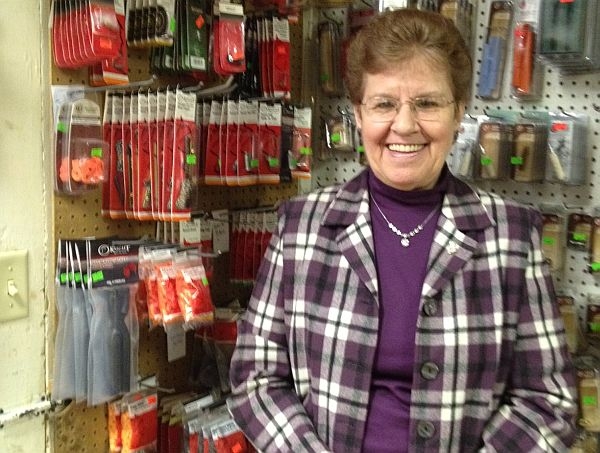According to the Harvard School of Public Health, suicides are most likely to happen in rural areas, such as Vermont and New Hampshire, which have the highest rates in New England.
So safety advocates in New Hampshire have launched a program they hope will help make it harder for suicidal people to get guns.
One of the founders is Elaine Frank. She’s been working for many years with a program based at Dartmouth Hitchcock’s Children’s Hospital. Its goal is to reduce intended and unintended injuries.
Guns, she says, account for half of the suicide deaths in the United States, and 85 per cent of attempts by firearms are fatal.
So she helped form the New Hampshire Firearms Safety Coalition.
She says members ask gun shop owners to display posters, brochures, and watch a video about how to ask customers the right questions, to make sure that they are not buying guns for the wrong reasons.
In one scene, a gun shop owner chats with a customer about the value of the suicide prevention program.
"We actually have some people come in and say. ‘I’ll take that gun, without even putting it into their hands," the shop owner says. "You know something’s up–you have to ask questions. We train our people to ask people, " what do you want this firearm for?"
The fictional shop owner also says he gets suspicious if the person buying a gun doesn’t have plans for using it in the future-like buying accessories or cleaning equipment. Project Director Elaine Frank says those are troubling signs of suicidal intent, especially in areas where most guns are used for hunting on more than one day.
"Guns are part of the landscape in my home town, in New Hampshire generally, in Vermont generally, and in rural areas. But what we are trying to say is if someone is at risk of suicide, having access to a firearm greatly increases their risk of dying," Frank said.
Frank says the outreach program is by no means anti-gun-just anti-suicide. She says about half of New Hampshire’s roughly 65 gun shop owners have agreed to participate.
The other half, she says, are wary of raising such questions, believing they are better asked by mental health professionals, not business owners.
Leila Welch, owner of Welch’s Gun Shop in Lebanon says she understands why gun shops are being recruited by the prevention program, and she does have some brochures on her counter.
But as much as she would like to help, Welch doesn’t hold out much hope that gun dealers like her can make much of a dent in this tragic problem.
"One time I had someone that did commit suicide here right in the store, and I had refused to sell him a firearm," Welch recalled. "And that was a sad thing that happened. But the school should have known. He was a very troubled young man, and they all said afterwards he was quiet and despondent. So why didn’t the school, someone help him? That was the same case in one of the other school shootings. He was a loner, picked on. So sometimes it’s not only the gun shops to blame."
Elaine Frank, of the Firearm Safety Coalition, says no one is blaming gun shops-she just wants their help. And she is trying to spread that message and the program to other states. She hasn’t yet worked out a partnership with Vermont, but says she would like to do that.
